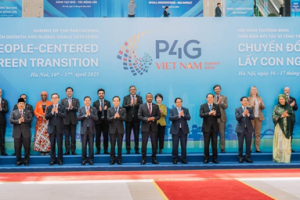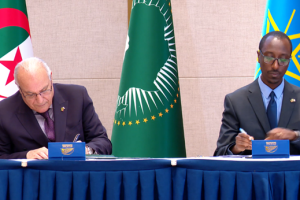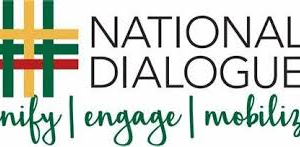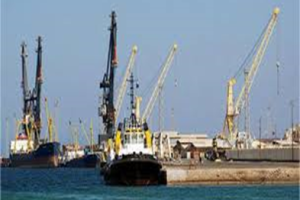The Nile River, a vital artery flowing through eleven countries, sustains a vast and expanding population. In 2020, the population of the nations sharing the Nile basin was estimated at 556 million, with projections indicating growth to over one billion by 2025.
Residents of the Nile Basin depend on its waters for agriculture, drinking, and increasingly, energy. This population constitutes a significant portion of the overall inhabitants of the basin countries. However, access to essential services, particularly electricity, remains a pressing issue for many in the region. Despite progress, a substantial number still lack reliable power, underscoring the urgent need for sustainable energy solutions to support economic development and enhance living standards.
Electrification rates vary widely across Nile Basin countries. Egypt boasts the highest rate at nearly 100 per cent, while many others report rates between 2 and 30 per cent, particularly in rural areas. This disparity highlights the uneven development within the region.
It is a public secrete that the Nile River holds considerable potential for hydropower generation, with basin countries estimated to possess a total hydropower capacity of around 140,000 MW, although only a small portion is currently utilized. To harness this potential and illuminate the lives of millions, collaboration among the basin countries is essential.
Cooperative frameworks like the Nile Basin Initiative (NBI) play a crucial role in promoting dialogue and joint efforts for sustainable resource management. Additionally, the Nile River Cooperative Framework Agreement (CFA), which came into force in October, provides a collaborative approach aimed at sustainable development and integrated water management. Rather than imposing fixed water allocations, the CFA seeks to conserve the river for future generations and foster harmony among the nations.
Believed to foster cooperation among riparian countries, the CFA also aims to move beyond colonial-era agreements to advocate mutual benefits. Initiated by Ethiopia, the agreement was developed through consultations with a Panel of Experts from January 1997 to March 2000.
Ethiopia has expressed its commitment to utilizing the river within a reasonable and equitable framework. However, Egypt has yet to sign the CFA and remains reluctant to cooperate, posing challenges for the future of Nile Basin collaboration.
It is known that the agreement also expected to challenges the out-dated 1959 agreement, which allocated 55.5 billion cubic meters of water to Egypt and 18.5 billion to Sudan, leaving upstream nations with little say. The CFA promotes a fairer distribution of resources, fostering cooperation among all basin countries.
During a media briefing on the 19th Nile Day held Saturday in Addis Ababa, Ethiopia’s Minister of Water and Energy, Habtamu Ittefa, underscored the importance of collaboration in managing the Abbay River. The event, themed “Strengthening Abay Cooperation for Climate Resilience and Shared Prosperity,” showcased Ethiopia’s commitment to sustainable water resource management.
Minister Habtamu highlighted Ethiopia’s active engagement in various initiatives aimed at protecting the Abbay River, including environmental measures to combat soil erosion. He emphasized the principle of “one river, one people, one goal,” advocating for the protection of water resources as a shared responsibility among all riparian countries.
The Nile Basin Initiative (NBI) has made significant strides, executing projects that generate clean energy for neighboring countries while reducing carbon emissions. “Providing clean energy and decreasing carbon emissions are notable achievements in promoting sustainable development and environmental conservation,” the minister stated.
Ethiopia has also planted over 40 billion seedlings as part of its reforestation efforts, with a significant number along the tributaries of the Abbay River. The minister stressed that all riparian countries must prioritize the sustainable management and conservation of the river to preserve its resources.
Callist Tindimugaya, Chair of the Technical Advisory Committee, emphasized that Nile riparian countries are working to establish equitable sharing of benefits from the Abay River, rather than focusing solely on water distribution. He noted that the river is a vital lifeline for over 500 million people living in the basin countries.
The minister elaborated on ongoing efforts to mitigate climate change risks through sustainable practices, ecosystem restoration, and community awareness initiatives. He reiterated Ethiopia’s commitment to fostering fair and equitable utilization of Nile waters to ensure suitable regional development.
Addressing the extraordinary Nile Council of Ministers’ meeting in Addis Ababa, Habtamu stressed that cooperation among Nile riparian countries is essential for the fair utilization of water resources for the prosperity of all citizens. He described the meeting as an opportunity to discuss technical and institutional issues within the NBI.
Highlighting past achievements, the minister noted the importance of raising awareness and creating a common understanding among member countries regarding equitable rights to the utilization of Nile tributaries. He reaffirmed the Ethiopian government’s commitment to cooperative management of the Abay (Nile) River.
Regarding the Grand Ethiopian Renaissance Dam (GERD), Habtamu stated that it was built by the Ethiopian people for the sole purpose of power generation. He described the GERD as a symbol of cooperation and an example for other countries to utilize their own resources effectively.
Florence Grace Adongo, Executive Director of the Nile Basin Initiative, acknowledged the significant progress made in achieving the objectives of the NBI’s 10-year strategy. The extraordinary council of ministers meeting was conducted under the theme “Strengthening Nile Cooperation for Resilience and Shared Prosperity.”
So, agreements like NBI and CFA is very important for working in collaboration rather want to utilize lonely. In his previous interview with The Ethiopian Herald, Fekahmed Negash, a former Abbay Dam negotiator and water resources researcher, emphasized the importance of a robust legal framework like the CFA. He noted that such agreements not only safeguard the interests of all basin nations but also encourage collaboration and attract funding for water-related projects.
Fekahmed said that CFA nullified the outdate colonial-era agreements from 1929 and 1959, which primarily benefited Egypt and Sudan. He explained that the CFA reflects the collective will of upper basin countries to reject those inequitable arrangements. The agreement strengthens regional ties while prioritizing fair resource distribution.
Beyond reaching an agreement and moving forward effectively, continued collaboration and investment in sustainable energy solutions are essential to ensure the Nile Basin’s prosperity for generations to come.
BY EYUEL KIFLU
THE ETHIOPIAN HERALD SUNDAY EDITION 23 FEBRUARY 2025





